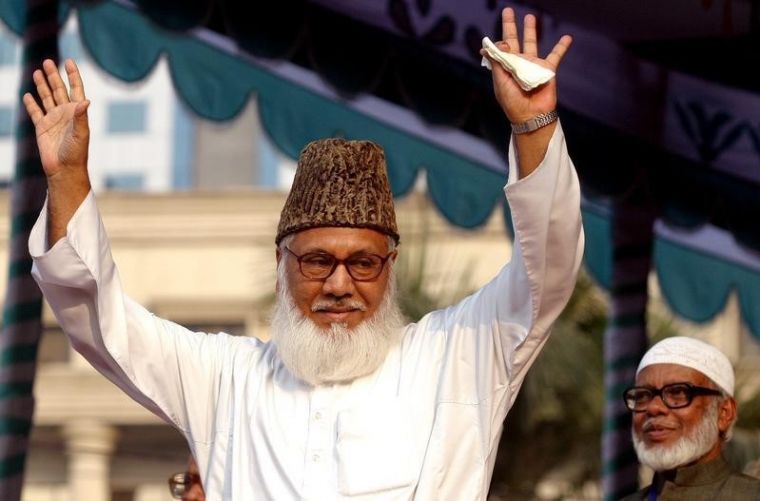Bangladesh executes top Islamist leader for 1971 war crimes
An Islamist leader has been executed in Bangladesh for crimes committed during the country's war of independence from Pakistan in 1971.
Motiur Rahman Nizami, 73, was convicted of genocide, rape and torture and was executed shortly after midnight on Wednesday morning. He led Bangladesh's largest Islamic party, Jamaat-e-Islami, and was a government minister during the now opposition leader Khaleda Zia's last term as prime minister.

Nizami was sentenced to death in 2014 and was executed after a final appeal was rejected last week.
Hundreds gathered outside his prison in Bangladesh's capital of Dhaka to mark the execution, which the government said was necessary to heal the wounds of the past.
Nizami is now the fifth and highest-ranking opposition leader to be executed for war crimes since 2013 after being convicted by a tribunal set up the Prime Minister Sheikh Hasina.
However Nizami's party, Jamaat-e-Islami, has said the tribunal has been used to victimise Hasina's political opponents.
"Nizami has been deprived of justice," said Jamaat's acting leader, Maqbul Ahmad. "He's a victim of political vengeance." The party said the charges against Nizami were baseless and called for a nationwide strike on Wednesday in protest at the execution.
Similar judgments and executions have triggered violence in the past and thousands of extra police and border guards were deployed in Dhaka and other major cities.
Bangladesh's independence from Pakistan in 1971 was opposed by some factions including Jamaat-e-Islami. About 3 million people were killed and thousands of women raped in the war.
However, Jamaat-e-Islami denies any of its leaders committed atrocities.
The US state department and some human rights groups have said the trials fall short of global standards and need oversight.
"While we have seen limited progress in some cases, we still believe that further improvements to the...process could ensure these proceedings meet domestic and international obligations," said state department spokeswoman Elizabeth Trudeau.
"Until these obligations can be consistently met, we have concerns about proceeding with executions."
The government denies the allegations.
Additional reporting by Reuters.











